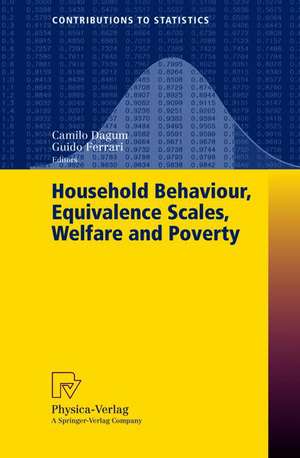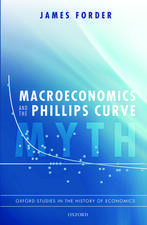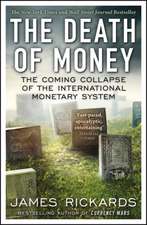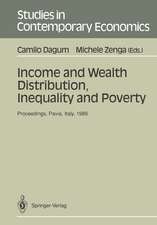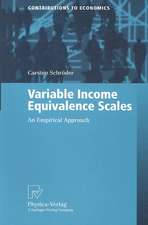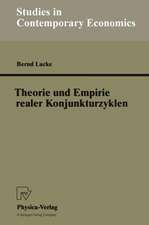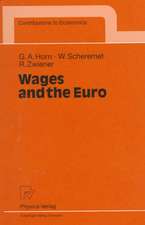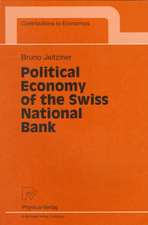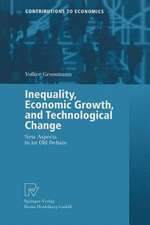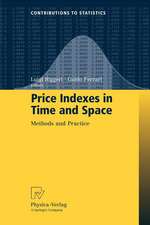Household Behaviour, Equivalence Scales, Welfare and Poverty: Contributions to Statistics
Editat de Camilo Dagum, Guido Ferrarien Limba Engleză Paperback – 8 oct 2003
Din seria Contributions to Statistics
-
 Preț: 391.99 lei
Preț: 391.99 lei - 20%
 Preț: 332.89 lei
Preț: 332.89 lei - 15%
 Preț: 639.08 lei
Preț: 639.08 lei -
 Preț: 376.85 lei
Preț: 376.85 lei - 15%
 Preț: 664.61 lei
Preț: 664.61 lei - 15%
 Preț: 642.36 lei
Preț: 642.36 lei - 18%
 Preț: 792.19 lei
Preț: 792.19 lei -
 Preț: 389.70 lei
Preț: 389.70 lei - 18%
 Preț: 792.81 lei
Preț: 792.81 lei - 18%
 Preț: 1382.21 lei
Preț: 1382.21 lei -
 Preț: 402.38 lei
Preț: 402.38 lei -
 Preț: 403.53 lei
Preț: 403.53 lei - 18%
 Preț: 943.73 lei
Preț: 943.73 lei -
 Preț: 374.37 lei
Preț: 374.37 lei - 18%
 Preț: 955.88 lei
Preț: 955.88 lei - 15%
 Preț: 653.33 lei
Preț: 653.33 lei -
 Preț: 383.71 lei
Preț: 383.71 lei - 15%
 Preț: 645.28 lei
Preț: 645.28 lei -
 Preț: 384.86 lei
Preț: 384.86 lei - 15%
 Preț: 637.59 lei
Preț: 637.59 lei - 15%
 Preț: 641.71 lei
Preț: 641.71 lei - 15%
 Preț: 649.71 lei
Preț: 649.71 lei - 5%
 Preț: 669.72 lei
Preț: 669.72 lei -
 Preț: 379.30 lei
Preț: 379.30 lei - 18%
 Preț: 942.76 lei
Preț: 942.76 lei -
 Preț: 393.35 lei
Preț: 393.35 lei - 18%
 Preț: 951.91 lei
Preț: 951.91 lei -
 Preț: 386.99 lei
Preț: 386.99 lei -
 Preț: 380.84 lei
Preț: 380.84 lei - 20%
 Preț: 651.75 lei
Preț: 651.75 lei - 15%
 Preț: 640.71 lei
Preț: 640.71 lei - 15%
 Preț: 640.37 lei
Preț: 640.37 lei - 15%
 Preț: 639.08 lei
Preț: 639.08 lei - 18%
 Preț: 944.67 lei
Preț: 944.67 lei - 15%
 Preț: 641.20 lei
Preț: 641.20 lei - 15%
 Preț: 638.57 lei
Preț: 638.57 lei - 18%
 Preț: 943.43 lei
Preț: 943.43 lei -
 Preț: 385.47 lei
Preț: 385.47 lei -
 Preț: 388.52 lei
Preț: 388.52 lei
Preț: 945.47 lei
Preț vechi: 1153.02 lei
-18% Nou
Puncte Express: 1418
Preț estimativ în valută:
180.94€ • 188.20$ • 149.38£
180.94€ • 188.20$ • 149.38£
Carte tipărită la comandă
Livrare economică 15-29 aprilie
Preluare comenzi: 021 569.72.76
Specificații
ISBN-13: 9783790801088
ISBN-10: 3790801089
Pagini: 316
Ilustrații: XVI, 296 p.
Dimensiuni: 155 x 235 x 17 mm
Greutate: 0.45 kg
Ediția:Softcover reprint of the original 1st ed. 2004
Editura: Physica-Verlag HD
Colecția Physica
Seria Contributions to Statistics
Locul publicării:Heidelberg, Germany
ISBN-10: 3790801089
Pagini: 316
Ilustrații: XVI, 296 p.
Dimensiuni: 155 x 235 x 17 mm
Greutate: 0.45 kg
Ediția:Softcover reprint of the original 1st ed. 2004
Editura: Physica-Verlag HD
Colecția Physica
Seria Contributions to Statistics
Locul publicării:Heidelberg, Germany
Public țintă
ResearchCuprins
Equivalence Scales Based on Collective Household Models.- Welfare Comparisons Among Individuals Under Samuelson’s Model of Households.- Equivalence Scales: A Fresh Look at an Old Problem. Theory and Empirical Evidence.- An “Endogenous Dummy Variable” Estimator of Women’s Opportunity Costs of Children in Italy.- Equivalence Scales, Horizontal Equity and Horizontal Inequity.- Equivalence Scales and Taxation: A Simulation Analysis.- Analysis of Resource Inflows and Their Impact on Household Behaviour: Evidence from South Africa.- Estimation of the Sharing Rule between Adults and Children and Related Equivalence Scales within a Collective Consumption Framework.- Drug Consumption and Intra-Household Distribution of Resources: The Case of Qat in an African Society.- Estimation of Unit Values in Cross Sections without Quantity Information and Implications for Demand and Welfare Analysis.- Analysis and Measurement of Poverty. Univariate and Multivariate Approaches and Their Policy Implications. A Case Study: Italy.- Using Equivalence Scales as Spatial Deflators: Evidence in Inter-Household Welfare Regional Comparisons from Italian HBS Micro-Data.- Authors List and Addresses.
Textul de pe ultima copertă
The book presents a quantitative analysis of household income distribution, welfare, poverty, cost of raising children, and taxation problems. The innovative construction of equivalence scales as an instrument for the assessment of these variables allows a unified treatment of households of different sizes and age composition with the scope of advancing a meaningful and relevant research on welfare, taxation, and poverty. Each chapter of the book offers a self-contained theoretical and methodological presentation, enhanced with applications to real-life case studies.
Caracteristici
Thorough and innovative contribution to the construction of equivalence scales as an instrument for the assessment of tax fairness, income inequality, family consumption, poverty measurement, cost of raising children, and household welfare Each chapter presents a self-contained development of the subject matter and applies it to a case study Includes supplementary material: sn.pub/extras
